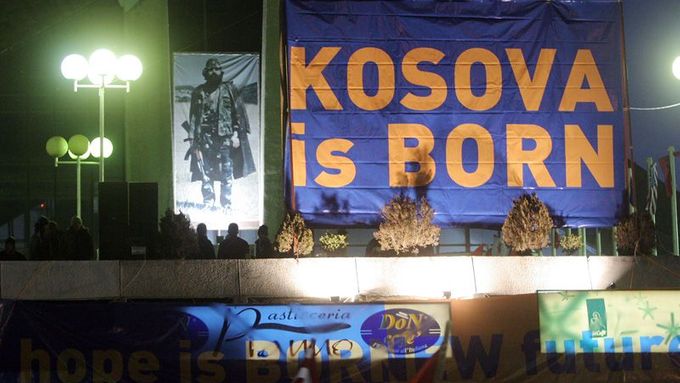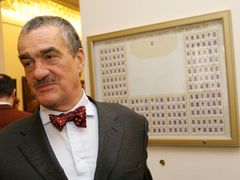Prague - Kosovo may well consider itself the world's youngest country after last Sunday's declaration of independence, but gaining international recognition will likely be a long and winding road for the nation of two million.
Although Pristina has already received a nod from Washington and four large countries of European Union, namely France, Britain, Italy and Germany on Monday, other states may take longer to acknowledge Kosovo's independence.
EU foreign ministers reached a conclusion on their Monday meeting that it is up to individual members to decide on the issue after it became clear countries like Spain and Slovakia are not ready to condone separatism, as they see it, for fear of encouraging their own minorities (be it Basque, Catalunyan or Hungarian) to follow the Kosovar example.
Waiting, watching
It is clear now that the Czech Republic will not be among the first wave of countries recognizing the independence of Kosovo either.
Fear of stoking a potential separatist rebellion inside its borders has most likely nothing to do with it, as people in Moravia and Silesia, sometimes admittedly rather weary of what they perceive as Bohemia's self-importance, are far from seeking secession.
Czech Minister of Foreign Affairs Karel Schwarzenberg, speaking to reporters in Brussels, said Prague first wants to see majority of fellow EU members recognize Kosovo. And there is one more reason for waiting, he added.
"I also want to see that the conduct of Kosovar authorities is such that I can bear full responsibility for it (=the diplomatic recognition) with a clear conscience," Schwarzenberg told the media, hinting at the promise of the Albanian-led government in Pristina to ensure that rights of minorities including the Serbs, Roma and Turks are protected.
Despite the split over Kosovo´s recognition, the EU agreed to send about 2,000 police, civil administrators and judges to supervise the new state of Kosovo.
Of the non-EU countries, China, Russia, Vietnam and Azerbaijan have indicated they would not accept the status of indepedent Kosovo either, while Japan and Australia are allegedly ready to do so.

